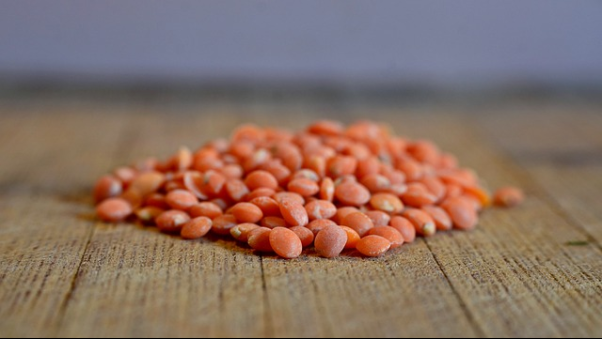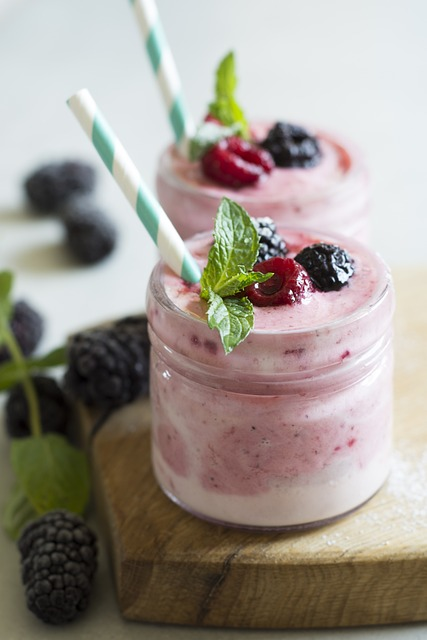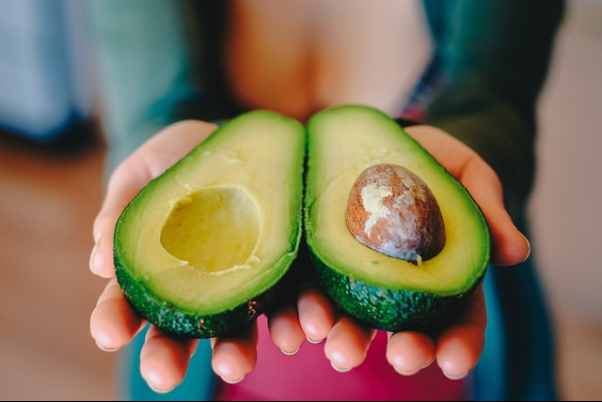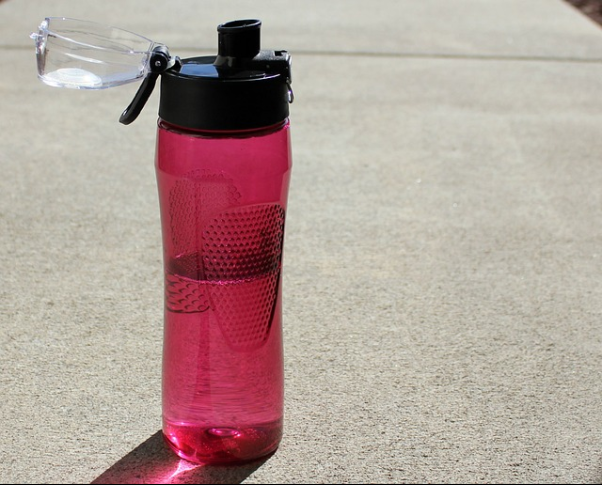Whether you’re trying to become more active or maintaining an active lifestyle, nutrition quickly becomes an important consideration.
The abundance of mixed messaging online can make a healthy plant-based diet seem confusing. Individual goals for varying activities will differ, but let’s look at the star players – sometimes known as the ‘macros’ (macronutrients) – that support vegan diets when aiming to achieve your fitness goals.
Carbohydrates
When leading an active lifestyle, carbohydrates take a winning place as an efficient energy source. All carbohydrates break down into glucose; glucose is then used for energy. Most cells, including the brain and muscles, prefer this energy source. The brain’s primary energy source is glucose, and when carbohydrates supply glucose, it can support concentration and mental clarity, which are both extremely important when training hard for your fitness goal. When carbohydrates are readily available, your body doesn’t rely on breaking down the protein in your body. The bottom line is that carbohydrates are vital for fuelling your muscles.
When lifting heavy weights or sprinting, a quick burst of energy is needed, and carbohydrates can provide just that because they can be broken down and absorbed rapidly.
What is the glycaemic index?
However, not all carbohydrates are the same. Different carbohydrate sources break down at differing rates. The way we measure this is called the glycaemic index. The higher the glycaemic index, the faster it raises blood glucose levels. An example of a high glycaemic index food would be a slice of white bread, whereas the low glycaemic index equivalent would be wholegrain, seeded bread. Essentially, the carbohydrate amount will be similar in both pieces of bread. However, the fibre in the wholegrain and the mix of fat and protein in the seeds slow down digestion. Slower digestion means that it hits your bloodstream at a steadier pace.
The carbohydrates that boast a lower glycaemic index rate include wholegrain starchy carbohydrates such as wholegrain pasta, brown rice, legumes such as lentils and fruit and vegetables such as sweet potato. The higher glycaemic index foods include white bread, fresh fruit juice and vegan sweets.

For general fitness, at each meal, about one-quarter of your plate would be made up of wholegrain starchy carbohydrates to provide a gentle release of energy throughout the day. However, if you’re planning on partaking in endurance sports, such as running a marathon, it would be better to pack higher glycaemic index snacks, such as vegan sweets, energy gels or applesauce, to ensure that you get that quick burst of energy when you need it the most.
The British Dietetic Association recommends that:
- 1–2 hours of light to moderate activity 3–5 times per week requires 3–5 g of carbohydrates per kg of body weight per day.
- 2–3 hours of intense activity 5–6 times per week needs 5–8 g of carbohydrates per kg of body weight daily.
- 3–6 hours of intense activity for 5–6 days per week requires 8–10 g of carbohydrates per kg of body weight per day.
Our body can store carbohydrates in our muscles as glycogen. However, it has a limited capacity and needs replenishing after exercising. Refuelling is the most effective within one hour after exercise, so try to ensure you end your practice with a high-carbohydrate snack. Fruit or vegan-friendly cereal bars can be a good choice.
Protein
There is no denying that protein has a crucial role in building and repairing muscle. Enough energy, protein and resistance training are needed to build muscle. Over the years, high-protein diets have become increasingly popular. Unfortunately, eating large amounts of protein won’t build muscle without enough energy from carbohydrates and proper training. A generally healthy vegan diet should provide enough protein.
Protein sources in plant foods
There are plenty of ways to consume enough protein from a vegan diet. Aim for protein at each meal, and consider adding a 15–25 g protein snack post-exercise to help your muscles repair and support the best growth. This could be:
- 250 g unsweetened soya yoghurt (12 g protein) with 3 tsp of chia seeds (3 g protein) or any nuts or seeds (around 3–5 g protein) of choice and berries (1 g protein)
- 250 g unsweetened soya yoghurt (12 g protein) with 40 g 70% dark chocolate (4 g protein)
- 100 g edamame beans (15 g protein) with a sprinkle of salt and pepper
- 200 g of chickpeas (15 g protein) roasted in your favourite herbs and spices
- Vegan protein bars
- Smoothie made with fruit and vegan protein powder

How much protein do you need?
The amount of protein you need to eat each day depends on how active you are:
- Around 1 g of protein per kg of body weight per day is the protein requirement for the general vegan sedentary population.
- Endurance athletes need about 1.2–1.8 g of protein per kg of body weight daily.
- Strength athletes want to get 1.2–2 g per kg of body weight daily.
Amino acids are the building blocks of a protein, and it’s important to include a variety of quality protein sources throughout the day to provide a good mix. Examples of 20 g of quality sources of plant protein include:
- Around 200 g of tofu
- 170 g of tempeh or seitan
- 240 g of chickpeas, cooked red lentils or black beans
You can reduce the bulk of these options by combining a smaller portion with protein-rich sauces, such as a creamy sauce made with silken tofu or a satay sauce made with peanut butter. Topping meals with crushed nuts or seeds and serving with quinoa or wild rice can also provide useful amounts of protein as well as other essential nutrients.
Do I need to use protein powders?
Some people may choose to include protein powders in their diet. They can be a convenient way to ensure adequate protein throughout the day. However, they shouldn’t be considered necessary; a well-balanced vegan diet can provide enough protein. Protein powders can be expensive and vary in quality, as some contain fillers or poor-quality ingredients. If you choose to buy protein powders, buy from reputable brands. Some strength athletes may also choose to use creatine supplements; consulting with an accredited sports dietitian is worth it to ensure correct use.
Fats
Good fats are essential for an active vegan. Mono-unsaturated fats are typically considered good fats. Fats are needed to produce hormones, protect vital organs and absorb vitamins such as A, D, E and K. Mono-unsaturated fats can be found in avocados, nuts, seeds and olive and rapeseed oil.
Omega-3 fatty acids have been shown to have anti-inflammatory properties, which can support recovery from exercise-induced inflammation. Excellent sources of omega-3 in a vegan diet include flaxseeds, chia seeds and walnuts.

Fluid
A highly underrated aspect of performance is hydration. Dehydration can negatively impact your performance, so ensuring good hydration before, during and after exercise is essential. The best way to tell whether you’re adequately hydrated is by the colour of your pee. If it’s a pale straw yellow colour, you will likely be well hydrated; however, if it is any darker, it’s worth increasing your fluid intake.
Exercise will cause sweating, and there may be instances where opting for a sports drink is appropriate. Water alone is adequate if the training is low to moderate and less than an hour. However, if an activity is considered moderate to strenuous and lasts over an hour (lots of sweating) it is worth having a sports drink. These could include isotonic sports drinks, or you could make your own with 200ml full-sugar squash, 800ml water and a large pinch of salt.

Including all these components in your diet should be enough to support your fitness goals. However, it may be worth seeking an accredited sports dietitian to personalise your nutrition for an active lifestyle, particularly for competitive sport.
By Manon Williams, Registered Dietitian
Find out more about our Vegan and Thriving campaign for more tips and delicious plant-based recipes.
The views expressed by our bloggers are not necessarily the views of The Vegan Society.

